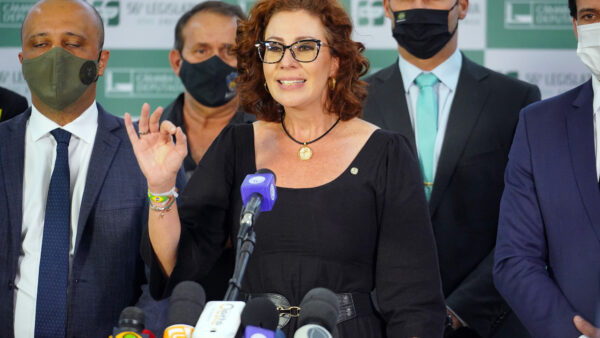This series about the Mariana dam collapse was originally published by Brio, in Portuguese. It was translated by Gustavo Ribeiro and edited by Christine Bootes
Chapter 4: Burying The Bones
Dawn broke on November 6 in Barra Longa with the city in mourning, residents crying as their city was covered with brown clay with black spots of iron ore. The light of day revealed the extension of the losses, hidden by the obscurity of the night. It was as though someone had poured a back cushion of asphalt from the sky. It filled houses, squares, schools. Toninho Papagaio would remember November 6 as the day Barra Longa stopped.
José Francisco Raimundo, a.k.a. Sabiá, lit a cigarette, opened a can of beer and stood silently in front of what remained of the square he used to spend time in every day. Not a single house had been spared by the river of mud, and it was only possible to enter them by tearing down their walls. He didn’t know where to begin with cleaning up his house, or how to restart his life. All he could do was cry. And so did another man, standing nearby.
José was devastated, standing next to the body of one of twelve cows that were lost to the mud. One of them was still in agony. José and his wife Sônia took their living from the milk they sell. “Not even on the day his father died did I see him crying like that,” Sônia recalls – she also lost 100kg of coffee she would sell in the city.
The small portion of cattle spared from the tragedy was crying out of thirst. The surviving dogs wandered around, with their noses and legs colored by the mud.
Street salesman Altair Vital looked at his house, buried in mud, remembering what he had just lost: two washing machines, a fridge, and countless memories. Housemaid Rita de Cássia Fraga spent her morning gathering the corpses of her 80 geese and ducks, which she had heard agonizing in pain for hours prior.
Salesman Rômulo Gonçalves crosses Toninho Papagaio. Ashamed, apologizes for not having listened to the warnings, and regretted having fought with him. It was the first of many apologies addressed to the cabdriver who tried to save his neighbors.
Farmer Antônio Albergaria looked to the garden where he used to plant papaya, yam, and taro – the source of his living. He lowered his head in disbelief as he confirmed that nothing was left. He remembered his grandmother saying that when doomsday would come,...


 Search
Search






































